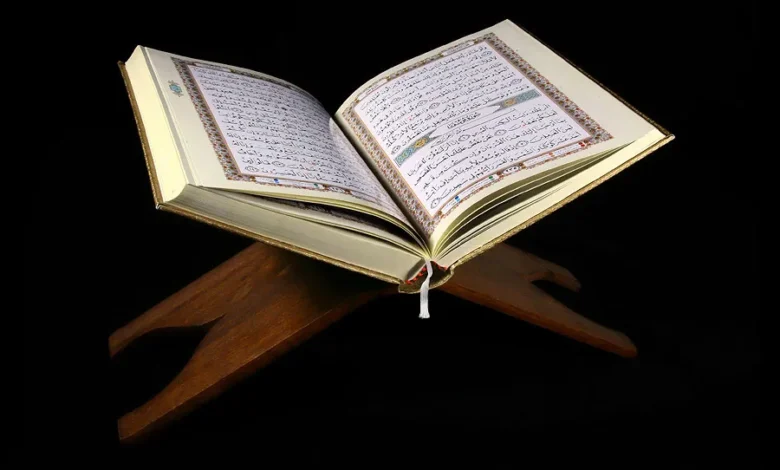The house that stood alone (Part II)

By Yusuf Bulafu
Assalam alaykum warahmatullahi wabarakatuh
Cont’d …
Abraha’s dream: A new religious order
With the political submission of Yemen to Abyssinia and the brutal suppression of its Jewish
rulers, the southern tip of the Arabian Peninsula was now under the religious influence of
Eastern Christianity, brought by the victorious Aksumite (Abyssinian) Empire. The man
entrusted with governing this strategically vital region was Abraha al-Ashram, a shrewd and
ambitious general who, though initially appointed as viceroy by Abyssinian King Kaleb, quickly
began carving out an independent domain for himself.
Unlike many military governors, Abraha did not rule through sheer force alone. He had vision.
He understood that lasting influence required more than political control — it demanded spiritual
and cultural supremacy. His ambition, therefore, was not only to consolidate power in Yemen but
to challenge Makkah’s unique religious authority over the Arabs, whose reverence for the
Kaʿbah, even in their polytheism, made it the unchallenged spiritual center of the region.
Makkah held a remarkable status among the Arabs. Though it was not a capital of any kingdom
nor blessed with agricultural wealth, its historical association with Ibrahim and Ismaʿil, and the
unbroken tradition of pilgrimage (hajj) to the Kaʿbah, gave it an enduring prestige. Even the
warring tribes of Arabia refrained from fighting during the sacred months out of respect for the
pilgrimage and the sanctuary. The Quraysh, custodians of the Kaʿbah, benefited immensely
from this. Their status as keepers of the sacred house allowed them to travel safely, negotiate
trade routes, and be accepted as neutral arbitrators in tribal affairs.
Abraha found this status intolerable. From his perspective, Makkah was an obstacle — a city
clinging to a pagan past, drawing tribes across Arabia in pilgrimage, and thus, drawing wealth
and authority toward itself. Abraha believed that Sanaʿa, with its more temperate climate,
imperial backing, and Christian orthodoxy, should replace Makkah as the spiritual capital of
Arabia.
To achieve this, Abraha embarked on a bold religious project: he constructed a grand cathedral
in Sanaʿa, known as al-Qullays. The edifice was unlike anything seen in southern Arabia.
Reports describe it as towering in height, intricately decorated with gold, marble, and imported
materials. He employed the finest artisans and architects from Abyssinia and Byzantium. The
cathedral was intended not only to serve Christian worship but to impress and awe the Arab
tribes, luring them away from the Kaʿbah and toward a more “civilized” religion and state.
Abraha then launched a propaganda campaign. He invited the tribes of Arabia to redirect their
pilgrimage to al-Qullays. He boasted of its grandeur, claiming that the Christian faith — with its
cross, its churches, and its theological weight — had now replaced the idolatrous rituals of
Quraysh. He sent emissaries with messages, sermons, and even economic incentives to attract
tribal leaders.
But the Arabs, despite their polytheism, were not persuaded. Their devotion to the Kaʿbah was
not only religious but cultural and ancestral. It was the House of Ibrahim, their patriarch. Their
poetry, identity, and annual rituals revolved around Makkah. While they were not monotheists in
the true sense, they held the Kaʿbah as a spiritual center. Many even believed in Allah as a
Supreme God but associated idols as intermediaries. As such, the idea of abandoning the
Kaʿbah for a foreign-built cathedral in Yemen was not only unacceptable — it was deeply
offensive.
According to early Arab sources and historical reports from Ibn Ishaq and al-Tabari, one Arab —
perhaps a member of Quraysh or a pilgrim — defiled al-Qullays in protest. Some accounts say
he entered the cathedral and relieved himself inside it, others say he smeared excrement on its
walls. Whether literal or symbolic, this act enraged Abraha. His campaign for spiritual
supremacy had been mocked, and the honour of his cathedral violated.
This incident became the spark for Abraha’s most ambitious and dangerous decision yet: he
would march on Makkah with an army, destroy the Kaʿbah, and force Arabia to accept his
religious order. It was a bold declaration of religious war, but also a political move. If Makkah fell,
the Quraysh would lose their authority, and Abraha would rise as both temporal and spiritual
sovereign of Arabia.
From a strategic perspective, the plan made sense. Makkah had no army, no alliances, and no
walls. Its defense lay in its neutrality and spiritual prestige. Abraha, with imperial wealth and
military power, believed he could crush this desert city and establish Sanaʿa as the new axis
mundi — the spiritual and economic center of the Peninsula.
Thus, Abraha’s dream of a new religious order was deeply intertwined with power, pride, and
politics. Though he cloaked it in Christian fervor, his motivations were more imperial than
spiritual. He did not seek to guide Arabs to monotheism out of devotion to Allah or Isa (Jesus,
peace be upon him), but to impose a religious identity that would consolidate his control.
This is a critical point for understanding the theological dimension of what happened next. While
Abraha was a Christian in name, his actions were driven by arrogance, not humility; conquest,
not dawah. He stood not as a reformer against idolatry, but as a colonizer seeking domination.
His church was not a sanctuary of guidance, but a tool of control.
It is also worth noting that Christianity in Abyssinia and southern Arabia at the time was deeply
influenced by imperial politics, sectarian disputes, and cultural syncretism. Many of the doctrines
were already distorted, and the leadership was often more interested in expanding influence
than conveying truth. The simplicity of tawhid — belief in One God without intermediaries — had
long been overshadowed by theological innovations and Trinitarianism.
Abraha’s desire to replace the Kaʿbah with his cathedral was not, therefore, an attempt to revive
the pure monotheism of Ibrahim or ʿIsa, but to supplant one religious system with another —
both compromised, but one older and indigenous, the other foreign and imperial.
Little did Abraha know that his dream of religious conquest would end in a catastrophic defeat,
and that the House he sought to destroy would not only survive, but soon be purified of idolatry,
and reestablished as the center of true monotheism by the very child who would be born in that
same year, in that same city, whose tribe he sought to humiliate.
To be continued …





